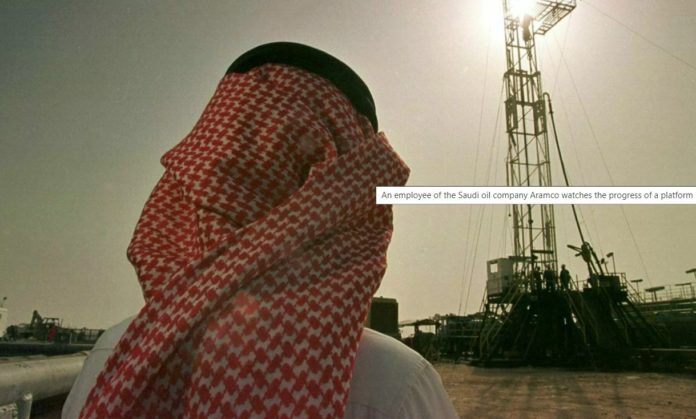The Arab League has backed Saudi Arabia in its rejection of the US intelligence report that blames the country’s leadership, and Crown Prince Mohammed bin Salman personally, for the murder of Saudi journalist Jamal Khashoggi.
The organization’s secretary-general, Ahmed Aboul Gheit, stated that “the prerogative to bring those responsible for the Khashoggi case to justice rests exclusively with the Saudi judicial authorities.
- Brief Anger Hampers Blood Vessel Function Leading to Increased Risk of Heart Disease and Stroke – New Study
- New Blood Test Pinpoints Future Stroke Risk – Study Identifies Inflammatory Molecules as Key Biomarker
- Enceladus: A Potential Haven for Extraterrestrial Life in its Hidden Ocean Depths
- New Experiment: Dark Matter Is Not As ‘DARK’ As All We Think
- Scientists in Fear of This New Predator From Red Sea Eating Native Species in Mediterranean
“Following the intelligence agency report, the US immediately imposed sanctions on 76 citizens of the kingdom, although the crown prince himself, considered by many to be the country’s royal leader, was not on the list, as this step would be too daring and would involve “a complete break of relations with a key US ally in the Middle East“, writes columnist Irina Alksnis.
At the same time, senior Democratic Party officials in Congress and the most influential American media outlets like The New York Times insist on the need to punish the prince. Be that as it may, the measures announced by Washington are only the beginning, as US President Joe Biden has promised “significant changes” in his policy towards Saudi Arabia.
“Washington has never had any illusions about the peculiarities of Saudi Arabia’s state and political system, but that has never prevented both countries from being strategic partners for many years,” continues the columnist.
However, the abrupt reaction to the US accusations not only from Riyadh, but also from other countries in the Persian Gulf and the entire Arab League, where Saudi Arabia is not even very popular, suggests that this time the East Medio expects more aggressive actions from the North American country.
“For the new US Administration, Saudi Arabia is the perfect object to demonstrate the removal of the foreign policy legacy of the previous president. First of all, this applies to Trump’s emphatically entrepreneurial approach to any matter, free from ideological dogmas,” explains Alksnis.
A fundamentally new phenomenon for the United States
Although it is not the first time that the United States uses the rhetoric of human rights, democracy, and liberalism in its foreign policy. Before, it was always just a tool that was used at convenient times and ignored when inappropriate. For this reason, “Saudi Arabia and many other countries far removed from democratic ideals remained for years in the status of friends and allies of the United States,” the columnist emphasizes.
Although the left-wing liberal ideology has recently gained so much influence that it is trying to transform itself from a tool into a real force, the main problem, after all, is not ideology, but resources. For decades, the Middle East was the main geopolitical testing ground for the United States, where a high level of conflict was maintained to extract as much as possible from the region, explains Alksnis.
- Brief Anger Hampers Blood Vessel Function Leading to Increased Risk of Heart Disease and Stroke – New Study
- New Blood Test Pinpoints Future Stroke Risk – Study Identifies Inflammatory Molecules as Key Biomarker
- Enceladus: A Potential Haven for Extraterrestrial Life in its Hidden Ocean Depths
- New Experiment: Dark Matter Is Not As ‘DARK’ As All We Think
- Scientists in Fear of This New Predator From Red Sea Eating Native Species in Mediterranean
The strange thing is that one of the main results of the presidency of Donald Trump was the reduction of tensions in the region and the improvement of relations between neighboring states, despite the numerous crises, including military ones, that have erupted throughout his four-year tenure. For example, the so-called Abrahamic agreements – unique testimonies of normalization of relations between Israel and an Arab country – were a historic event.
The former president solved the problems in the Middle East in a very easy way: he redirected the main efforts of geopolitical confrontation and the search for the necessary resources for his country in other directions: in the first place, China and Europe. After that, the region had a chance to breathe a bit, says Alksnis.
“Except now the Democrats are back in the White House and their new anti-Saudi initiative unequivocally hints that they are willing to return the Middle East to America’s favorite backyard status, with all its usual attributes and bloody consequences. It is surprising that the prospect has angered almost every country in the region, including those that traditionally have no sympathy for Riyadh,” the columnist concludes.
